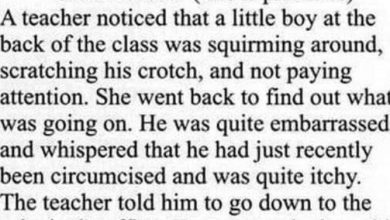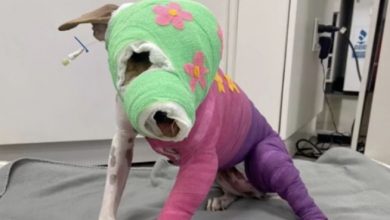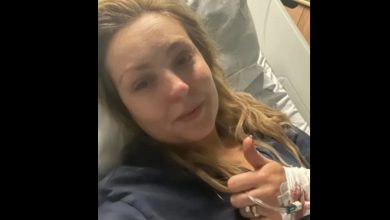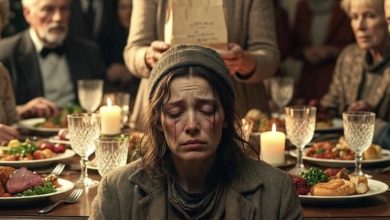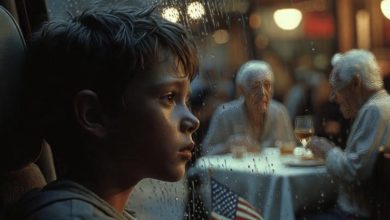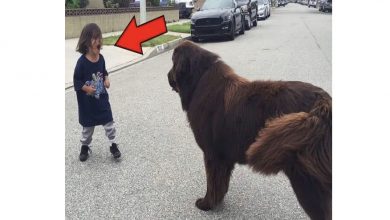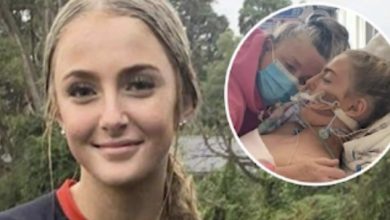“A Family Divided by a Powerful Matriarch: How a Simple Eulogy Led to a Shocking Revelation About My Grandmother’s Legacy”
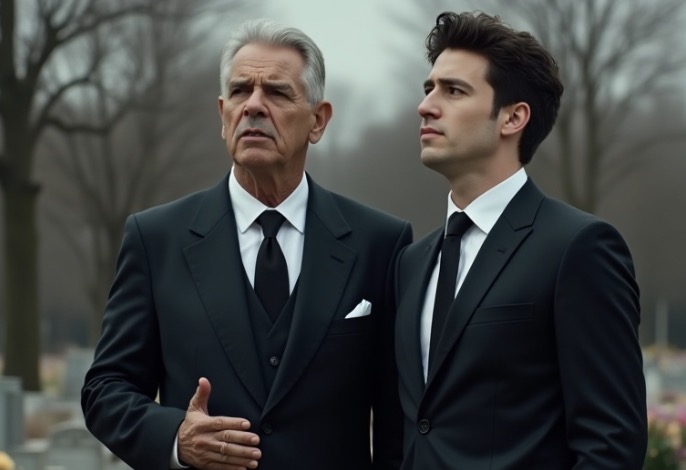
At my grandmother’s funeral, nobody wanted to stand up and give the eulogy. I finally stepped forward and shared a glowing story about her. Later, her lawyer pulled me aside with words that would change everything…
The very first truth about that day was simple: no one wanted to speak.
I sat in the front pew of the large, overly air-conditioned funeral home, looking at my family members as they fidgeted in silence. We had gathered to say goodbye to Evelyn Walsh, but there wasn’t an ounce of real grief in the room. At eighty-four, her death wasn’t shocking, and to most of us, it was closer to a relief than a tragedy.
Evelyn Walsh had been, for lack of a kinder word, cruel. She wrapped herself in luxury and wealth but used them like weapons. Her sharp tongue could cut deeper than any knife, and she never missed a chance to point out flaws, failures, or insecurities.
My cousin Derek still avoided desserts at family gatherings because, as a teenager, she’d humiliated him about his weight. My cousin Sarah gave up her dream of becoming an artist after Evelyn sneered that “painters are just beggars with brushes.”
Her favorite tactic was simple: money. She dangled her inheritance like bait, forcing the family into competition for her approval. Dinners and holidays weren’t times of joy; they were battles. Everyone fought for a piece of her affection, always hoping it would translate into a bigger share of her will.
I had walked away from that game years earlier. I was the grandson who never played along, a twenty-eight-year-old high school English teacher with nothing to prove and nothing to gain. I visited her occasionally, not because I expected kindness or reward, but because I couldn’t quite bring myself to abandon her completely.
“You’re the only one who doesn’t want anything from me, Nathan,” she once told me, narrowing her eyes. I never knew if it was meant as praise or as an accusation.
Now she was gone, and the silence at her funeral spoke louder than words.
The funeral director, Mr. Abernathy, stood at the front. He was sweating through his suit, his voice cracking as he pleaded, “Surely someone would like to share a memory of Mrs. Walsh? A lesson she taught you?”
No one moved. Uncle Robert studied the shine on his Italian shoes. Aunt Margaret clutched her phone, pretending to scroll. The silence was unbearable, heavy with decades of resentment. Even the neighbors and old business colleagues present shifted uncomfortably.
“Anyone?” Mr. Abernathy asked again.
Still nothing.
That’s when I stood.
“I’ll do it,” I said.
Every head turned toward me. My family looked shocked. My aunt whispered, “Nathan, you don’t have to.”
“It’s fine,” I replied, walking toward the podium. “Someone should say something.”
The echo of my shoes filled the room as I stepped up to the lectern. I stared at the polished casket below me, panic clawing at my chest. I had nothing to say. No warm memories, no touching stories. The truth was unthinkable: Evelyn Walsh had been a manipulator, a tyrant who scarred us all.
So in that moment, I made a decision.
I lied.
“My grandmother, Evelyn Walsh, taught me that love comes in many forms,” I began, my voice steadier than I felt.
I spoke of apple pies she never baked. Of childhood stories she never told. Of kindness she never gave.
And something remarkable happened. People started nodding. A neighbor dabbed her eyes. My family leaned in, eager to believe the version of her I was inventing. They wanted to be comforted, even by fiction.
“She always saw potential in people,” I continued, lying through my teeth. “She believed we could do more, and she pushed us to reach higher.”
In truth, her “pushing” felt like constant criticism, but I pressed on.
I ended with my boldest invention yet. “In our last conversation,” I said, “she told me, ‘Nathan, kindness is the only currency that truly matters.’”
I let the silence stretch before adding, “My grandmother wasn’t always easy to understand. But sometimes the people hardest to love are the ones who need it the most.”
When I stepped back, soft applause filled the room. My Aunt Margaret was openly crying. My uncle looked thoughtful. Somehow, my lies had given them comfort—and given Evelyn a dignity in death she rarely showed in life.
After the burial, under a gray sky, as people drifted away, a man in a perfectly tailored suit approached me.
“Mr. Walsh,” he said, offering his hand. “Richard Hartwell. I was your grandmother’s attorney.”
“Nice to meet you,” I replied, shaking his cool hand.
“That was a beautiful eulogy,” he said, smiling faintly. “Very… creative.”
Heat rushed to my face. He had seen right through me. “I just thought someone should say something nice.”
“Indeed,” he said, his eyes sharp. “But now, I’d like to speak privately. There are matters about your grandmother’s estate we must discuss. My office. Tomorrow at ten.”
The next morning, I sat across from him in his office, surrounded by shelves of law books and the faint smell of leather.
“Mr. Walsh,” he said, leaning forward, “your grandmother left you her entire estate.”
The words hit me like a blow. “I’m sorry—what?”
“All of it,” he repeated. “The house, the accounts, the investments. Valued at around two million dollars.”
“That doesn’t make sense,” I stammered. “She barely tolerated me. She spent her life favoring everyone else.”
Hartwell shook his head. “On the contrary. She tested everyone. For twenty years, she called them her ‘character tests.’ She wanted to see who cared for her as a person, not as a bank account. Most of your family failed. You were the only one who visited without asking for anything. That’s why she chose you.”
I sat in stunned silence.
“And the eulogy?” I asked softly.
“She planned for it,” he said. “She knew no one would want to speak. She wanted to see if anyone would choose compassion over cold honesty. You did. And that was the final test.”
He slid an envelope across the desk. “She left this letter for you.”
With shaking hands, I opened it.
My dear Nathan,
If you are reading this, it means you chose kindness at my funeral, even when I gave you no reason to. You have passed my final test.
I know I was not easy to love. Life taught me to guard myself, to be hard, to demand. I tested your uncle with business, your aunt with obedience, your cousins with ambition. They failed. But you, Nathan—you never failed. You came when you didn’t have to. You treated me with patience I didn’t deserve. And I noticed.
This inheritance is not payment. It is recognition. You showed compassion when I gave you little in return. Use this money to live fully, to be happy, and to be kinder than I ever managed to be.
Thank you for seeing good in me, even when it wasn’t there.
With love,
Your Grandmother, Evelyn
I read it twice, tears blurring the ink. Hartwell said quietly, “She wasn’t only cruel. She was also lonely. And you gave her something she hadn’t known in years—dignity.”
Six months later, I walked through her old house—now mine. Without her presence, it felt less like a museum and more like a home waiting for life to fill it.
In her closet, I found a scrapbook. Inside were clippings, report cards, even a program from my graduation I hadn’t known she attended. On the last page was a photo of us on her porch. She was smiling—a real smile.
Beneath it, in her careful handwriting:
“Nathan. The only one who sees me as a person. I hope he understands how much it means.”
I sat on the floor and cried. Not for the tyrant I thought I had buried, but for the flawed, frightened, lonely woman she truly was.
The lies I told at her funeral now felt like the truest words I had ever spoken. Because maybe, deep down, that was who she had always wanted to be.
Her greatest gift wasn’t the fortune. It was the understanding that even the hardest people to love still long for kindness. And by choosing compassion, I hadn’t just inherited her wealth. I had finally inherited her love.

